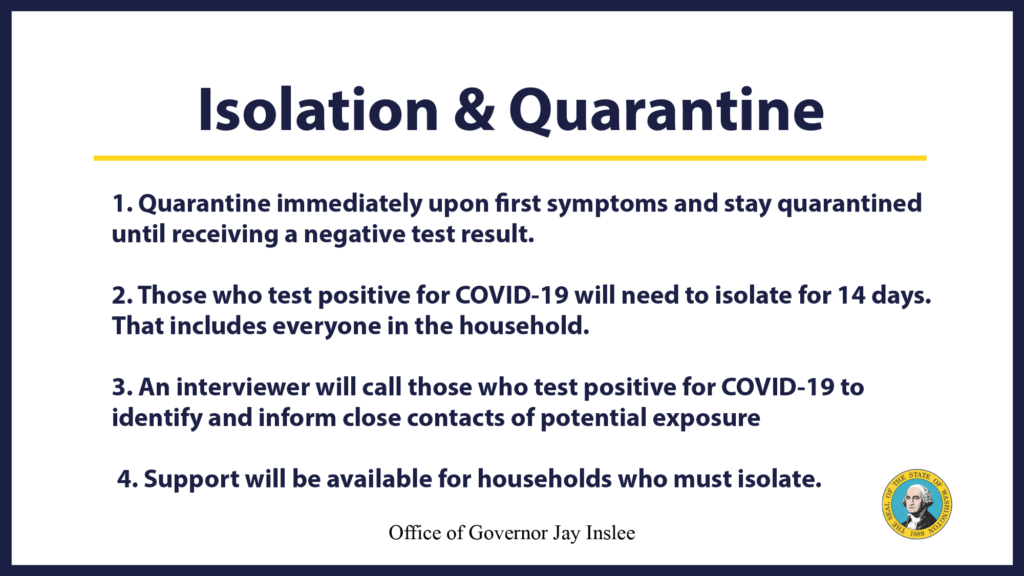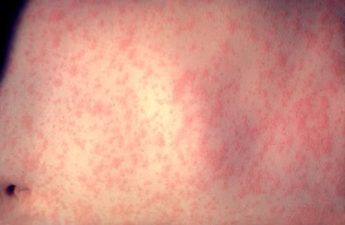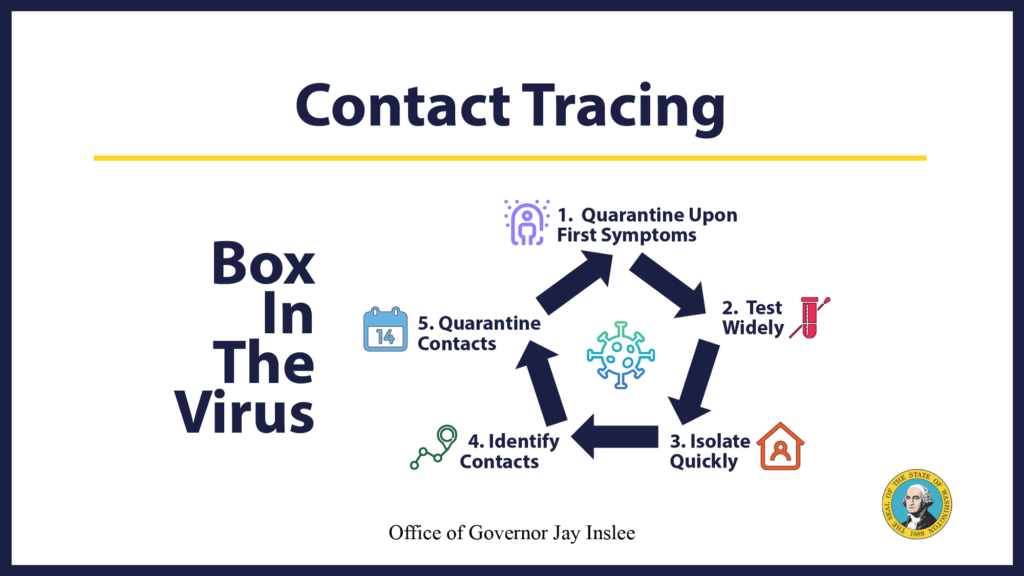
Washington state Gov. Jay Inslee (D) announced the launch of a statewide contact tracing plan today that will allow more businesses to open and more people to be active in public while helping to slow and prevent the spread of COVID-19.
“Contact tracing is another tool in our toolbox for tackling COVID-19 in Washington,” Inslee said. “While we need to continue physical distancing, this will allow us to get a better handle on who gets sick and how the virus is spread, which is vital to re-opening our economy.”
Local health departments will lead these efforts and the state Department of Health and its partners will support this work.
The information collected is only used by public health professionals and is confidential. It will not be shared. Contacts will not be told the name of the person who may have exposed them to COVID-19.
When someone tests positive for COVID-19, an interviewer will reach out by phone. They will ask who that person has been in close contact with, then reach out to those other people to let them know they have been exposed.
Those people would need to isolate or quarantine themselves. This plan involves contacting people within 24 hours of a positive test result and talking to their close contacts within 48 hours.
The information collected is only used by public health professionals and is confidential. It will not be shared. Contacts will not be told the name of the person who may have exposed them to COVID-19.
These professional interviewers will ask about symptoms, recent exposure and demographic questions such as age, address, gender and ethnicity.
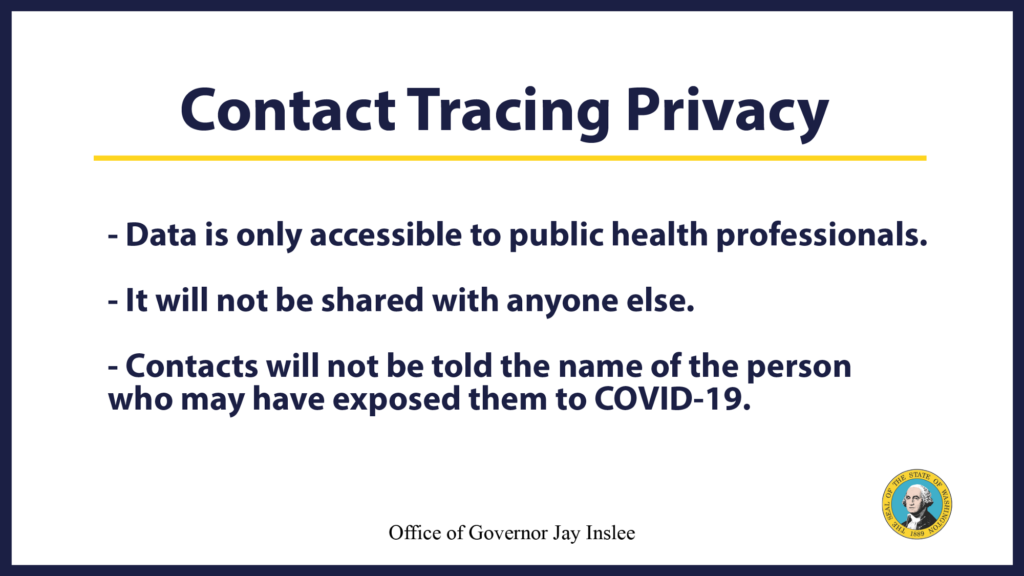
During the governor’s press conference, he announced that the statewide contact tracing team will be trained and in place by the end of the week (May 15). The contact tracers will include members of the Washington State National Guard, though they are an interim part of the initiative. The state Department of Health plans to continue training more workers and volunteers to replace them over time.
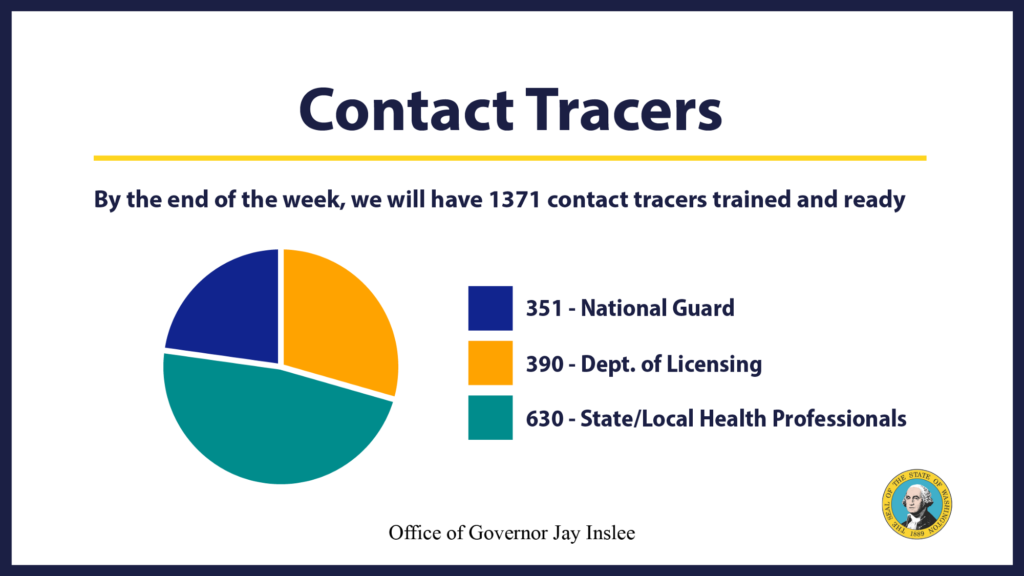
“At the sign of any symptoms, people should self-quarantine. Voluntary isolation and quarantine will be a major challenge, but it is one of the most critical portions of this entire endeavor,” Inslee said. “Individuals and their households will need to isolate for 14 days if they are exposed to the virus. We know this will present challenges for some families and we are looking at ways to address them.”
